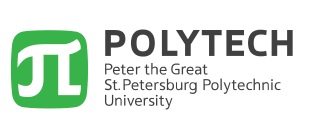

The transition to the digital economy should in the longer term provide balanced solutions to the problems of social and economic development, preserving a healthy environment and reserves of natural resources, meeting the demand for goods and services, and ultimately ensuring greater prosperity for the country’s population, at a time when all material and non-material resources are limited. Management actions, both the kind based on human decision-making and those that are totally automated, will offer the most rational solutions to the problems we face at all levels, from heating private homes to preserving the ecosystem of the world’s oceans
A prerequisite for making the digital economy a practical reality is the availability of an appropriate technical platform for gathering, transmitting and exchanging various forms of information among different network elements in a way that meets very stringent requirements in terms of speed and quality of service, but also in terms of affordability and sustainability. In most cases, the only real technical option available, when deciding on an economically efficient plan to develop IT infrastructure, is to deploy radio networks. In this regard, particular requirements apply to the deployment of 5G and further generations of mobile networks. In addition, there is an increasingly acute need to develop modern satellite communication systems for use in satellite navigation, broadband mobile communications, and remote Earth sensing. Trends in technology suggest that specialized radio networks will play an even more important role in the development of the transport sectors by providing means for ensuring navigation, traffic safety, vehicle route monitoring, and rescue service communications in emergencies and disasters, which will ultimately create the conditions for the widespread introduction of unmanned vehicles in the air, at sea and on land. It is already clear that this will apply not only to specialized or military applications but also to standard cargo or passenger transportation. At the same time, we should expect to see the introduction of fully or partially autonomous machinery in agriculture and forestry.
In this regard, one of the fundamental functions of the State is to create an enabling administrative and legal framework to stimulate the development of new radio-electronic systems for various purposes. The main issue here is the use of a valuable natural resource the radio-frequency spectrum. Finding appropriate solutions to ensure the sustained availability of frequency resources in order to develop new technologies is crucial to the growth and development of the digital economy at a time when that valuable natural resource is in short supply. The problem has to be considered holistically, taking into account the needs of all radio services and users; this will enable the national economy to move gradually towards a sustainable model of development.
At this Seminar co-organised by the ITU and Peter the Great St. Petersburg Polytechnic University, experts from the industry, telecommunication operators, regulators and specialized agencies of Europe and CIS countries will meet to present and discuss their experiences in latest technologies and trends in the development of radiocommunication systems for industry, including telecommunication, transport, navigation, space, etc. Special focus will be given to future spectrum requirements to facilitate worldwide proper operation of radio systems.
Event co-sponsored by:
